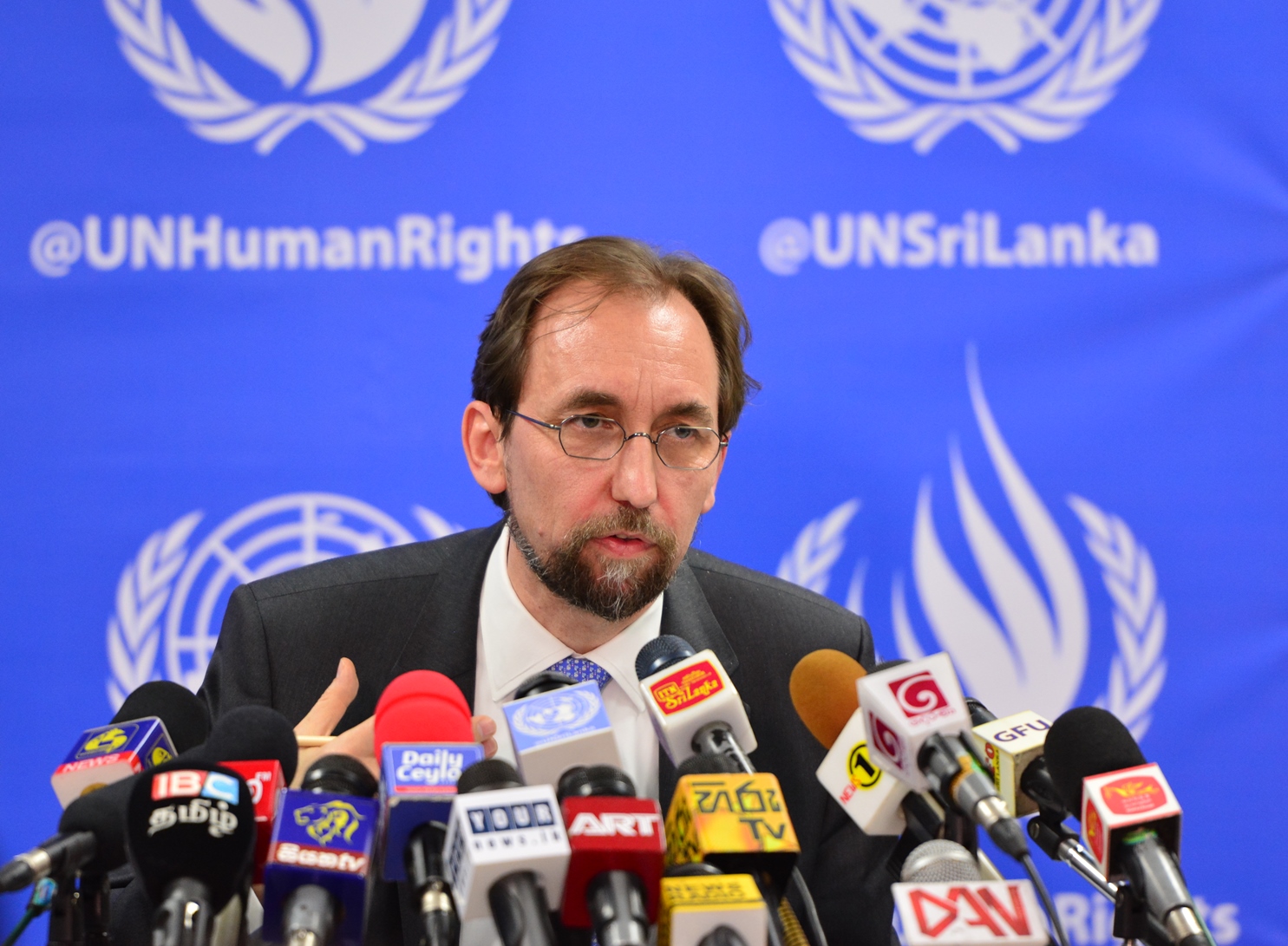 |
International participation in Sri Lanka’s accountability process is an important aspect in ensuring genuine accountability amidst war crimes allegations and widespread sexual violence, said the United Nations Human Rights Chief Zeid Al Hussein, at the end of his visit to the island this week.
Stressing the importance of international participation, the Human Rights Chief said Sri Lanka's justice system over the years "became highly politicised, unbalanced, unreliable".
"The country’s history over the past few decades is littered with judicial failures," he added, noting “virtually every week provides a new story of a failed investigation, a mob storming a court room or another example of a crime going unpunished".
Stating that a recently passed UN resolution, which calls for international participation in an accountability mechanism, had "laid out an eminently sensible pathway for the country to follow", Mr Hussein stressed that his office would be "reporting back to the Council on progress — or lack of it — next June, and again in March 2017".
He also highlighted ongoing human rights violations and the lack of accountability for them in his statement. “Sexual violence and harassment against women and girls is particularly poorly handled by the relevant State institutions — especially when the alleged perpetrators are members of the military or security services — and, as a result it remains all too widespread,” noted the High Commssioner.
Mr Hussein said torture and sexual violence by Sri Lanka's security forces was ongoing, acknowledging reports detailing cases that took place last year, after the current government came into power.
Highlighting the heavy military presence in the North-East, Mr Hussein said,
“In parallel, the size of the military force in the North and the East can be reduced to a level that is less intrusive and intimidating, as a first step in security sector reform".
The Human Rights Chief further called on Sri Lanka’s military return land that it is occupying in the Tamil North-East. "The military needs to accelerate the return of land it has seized and is still holding to its rightful owners," he said. "While some land has been returned in the Jaffna and Trincomalee areas, there are still large tracts which can and should be swiftly given back. Once the land has been given back, the remaining communities of displaced people can — if given the necessary assistance — return home, and a lingering sore will have been cured once and for all."
Drawing on Sri Lanka’s prime minister’s recent remarks that all disappeared persons could be presumed dead, Mr Hussein said it had caused "great distress among their families" and "this statement must be followed by rapid action to identify precisely who is still alive and who has died or been killed, properly account for their deaths – including whether or not they were unlawful – identify the location of their remains, and provide redress”.
Commenting on his visits to the North-East Mr Hussein said,
“When you visit Colombo, you see a bustling city… When you visit the North and the East, you see, in patches at least, damaged and depressed areas, poverty and continued displacement."
He also stated that the North-East was yet to have full media freedom under the current Sri Lankan government, noting that the fear of reprisals “has mutated but, sadly, still exists”.
Welcoming the start of a new constitutional drafting process in Sri Lanka, the rights chief however relayed concerns that the process is too rushed and has not been properly planned or adequately resourced"and that "there are also fears that at a later stage this may be achieved at the expense of other equally important processes such as truth-telling, justice and accountability".
Mr Hussein added, that though there were indications that the government may be wavering on its human rights commitments, he had been “reassured this morning to hear both President and the Prime Minister state their firm conviction in this regard.”
See full statement here.
